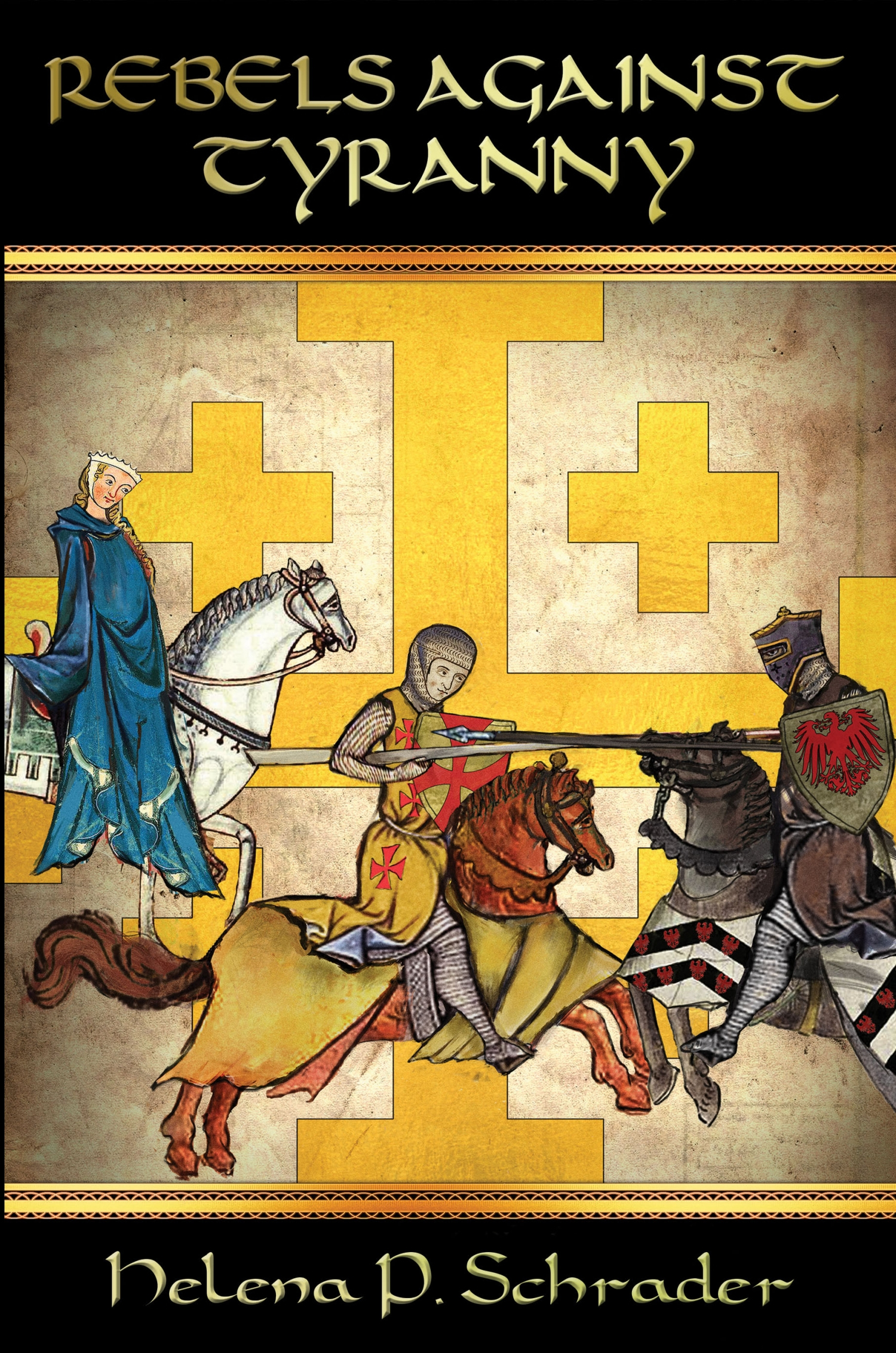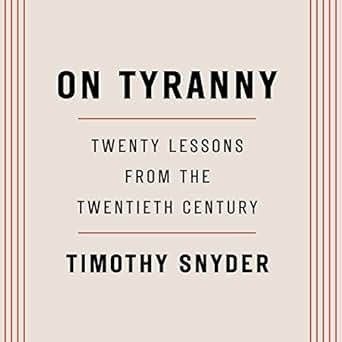
His example is the Reichstag fire, when the German parliament building burned down one night in February 1933. He notes that terrorist attacks were ideal opportunities for would-be tyrants to snatch away citizens’ rights. “Both fascism and communism were responses to globalization: to the real and perceived inequalities it created,” he reminds us. He points out what he sees as dangerous resemblances between our current society and those that gave birth to tyranny. Snyder never mentions President Trump by name (referring instead to 'the president"). So choose an institution you care about – a court, a newspaper, a law, a labor union – and take its side.” They fall one after the other unless each is defended from the beginning. His “lesson”? “Institutions do not protect themselves. “This is a misguided reflex.” He cites a 1933 editorial from a major German Jewish newspaper: The article asserts that Hitler would neither strip German Jews of constitutional rights, nor create ghettos, nor unleash violent mobs, because “a number of crucial factors hold power in check.” Such ideas were considered reasonable in 1933, as they are today, Snyder writes. “We might be tempted to think that our democratic heritage protects us from ,” Snyder writes.

The less-than-130-page book comprises 20 “lessons,” each with a title as concise as it is thought-provoking: “Do not obey in advance,” “Be kind to your language,” “Establish a private life.” Snyder, an award-winning author of books on mass murders committed by the Nazi and Soviet governments, illustrates his lessons with examples from the two regimes, examples that open our eyes to our misplaced complacency in our current society. “On Tyranny” is an expansion of a popular Facebook post on defending democracy that Snyder wrote following the US election. Though slim enough to fit in your pocket, this bestseller repeatedly drives home a sobering thesis: “Americans today are no wiser than the Europeans who saw democracy yield to fascism, Nazism or communism in the twentieth century.” A newer title that these same readers might want to add to their reading lists is Yale University historian Timothy Snyder’s On Tyranny: Twenty Lessons from the Twentieth Century. Unsettled by what they saw as an unconventional government with unconventional policies, some readers turned to writers like Orwell in order to stay alert to any possible erosion of democracy. This is the long view we all need, given to us right now by a leading expert.Shortly after the November, 2016, election of Donald Trump to the US presidency, books like George Orwell classic "1984" and Sinclair Lewis's eerie "It Can't Happen Here" shot to the top of bookseller lists across the country. Linking past and present, and speaking only from notes, Snyder delivers an important call to arms and roadmap for resistance, providing invaluable ideas for how we can preserve our freedoms in the uncertain years to come. With forays into history, he clarifies the causes of the Russian invasion and the meaning of Ukrainian resistance, and explains the war's connections to threats to democracy around the world.



In this exclusive audiobook edition, Timothy Snyder combines the original On Tyranny (2017)-20 lessons on how history can instruct our response to the rise of tyranny around the world today-with 20 new lessons that answer the questions everyone is asking about Russia's war on Ukraine.


 0 kommentar(er)
0 kommentar(er)
